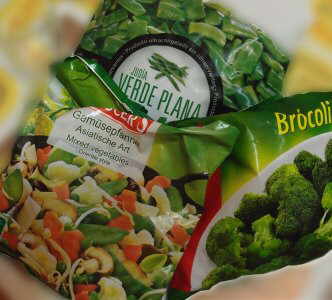Contents
What is lemon juice good for?
CURATIVE PROPERTIES OF LEMON JUICE
Is lemon juice good?
Lemon juice is one of the best juices we can take to stay healthy. Its high content of vitamin C, flavonoids and beta-carotenes give it preventive and healing properties for many ailments of our body.
Drinking lemon juice, especially in spring, is a way to detoxify our body.
In times of heat, the lemonade, which is based on lemon juice, offers refreshing values very prominent.
- In winter, a hot lemon juice tea, combined with ginger can help reduce the symptoms of cold.
What properties does lemon juice have?

Squizzing a lemon to extract the juice
Among the main properties of this juice, we point out the following:
- A lot of vitamin C, a powerful antioxidant that, among other properties, keeps us young for longer, protects our circulatory system, lowers cholesterol, diminishes hypertension, protects our eyesight and is a potent anticancer.
- It is diuretic and detoxifying, so it is used in diets of slimming, being very famous “the diet of lemon to lose weight”. Its detoxifying and diuretic capacity is very adequate in problems in which it is convenient to eliminate toxins and leftover liquids, such as rheumatism, arthritis, gout, etc.
- It stimulates the digestion in those people who have lazy stomachs: The lemon produces an increase of hydrochloric acid that favors the digestion.
- Protects against the formation of stomach ulcers and heartburn.
- It favors the absorption of calcium and iron, so it prevents the onset of osteoporosis and anemia.
- Stimulates the formation of collagen, a protein that is part of bones, skin and muscles.
For whom is lemon juice particularly suitable?
Lemon juice is ideal for all people, but especially for those who have special needs for vitamin C, that is
- Pregnant and breastfeeding women: Pregnancy and breastfeeding requires a higher dose of vitamin C.
- Women who take birth control pills: This type of medication can produce deficiencies of vitamin C, vitamin B6 and vitamin B2
- People who are regularly taking medicine: Some medicines decrease the absorption of vitamin C. Other medicines produce an increased consumption of vitamin C.
- People with diabetes: Vitamin C helps decrease the negative effects of diabetes in the body.
- People who smoke: Tobacco produces a greater oxidation of the body that needs to spend more antioxidants like vitamin C to counteract this oxidation. Lemon juice helps to recover the excess vitamin C spent.
- People who drink a lot of alcohol: Like tobacco, alcohol is another oxidizing product. People who drink “spend” more vitamin C.
- Older people: Vitamin C helps to improve the conditions of the elderly, delaying or decreasing some very common problems of old age, such as deafness, lack of vision, loss of bone mass, etc.
- People who suffer from bone fractures, bone or tendon inflammations, wounds or skin diseases: Vitamin C stimulates the formation of collagen, the main protein for bones, muscles and joints.
- People with allergy and asthma problems: Vitamin C has antihistamine properties, which is why it helps to improve the problems of people with asthma and allergy.
For whom is lemon juice not suitable?
- People with gastritis, heartburn and hiatal hernia: Lemon juice may be adequate to prevent this type of problem, but it is not suitable for people who already have these anomalies.
Citrus juices increase heartburn and may exacerbate the conditions of people who already have heartburn problems, especially in those with gastritis and hiatal hernia, whose gastric reflux deteriorates and further damages the esophageal membrane
- People who have a tendency to suffer migraine. It has been proven that in many of them, citrus fruits can trigger or cause migraine.
- People with sensitive tooth enamel: Lemon juice spoils the tooth enamel.
- People who sunbathe or are exposed to high solar radiation: Lemon juice has phototoxic properties, that is to say, it reacts with sunlight and can cause sores on the skin. This can happen mainly in people who take the sun on the beach, people who work outdoors or people who go to the high mountain, where solar radiation is especially high. In these cases be wise and do not drink too much lemon juice and cover the skin not to expose it to the sun.
How to make lemon juice?
It is important to squeeze lemons of good quality to make lemon juice. When making lemon juice, we have to take into account the following:
- It is important to wash the lemons externally. All citrus are subjected to large fumigations with chemicals that must be removed before handling lemons. Hence it is interesting to extract the lemon juice at home to make sure the lemons have been properly washed.
- Lemon juice should be drunk as soon as possible: Vitamin C is destroyed in contact with air and with heat, so it is important not to leave lemon juice outdoors for a long time.
- We must ensure that the lemon juice does not come into contact with the teeth: Lemon juice is very acidic and could damage the tooth enamel. A good way to prevent lemon juice from coming into contact with your teeth is to drink it with a straw.
*More information:
– Lemon nutritional composition
– Is lemon alkaline or acidic?
![]() More information on lemon
More information on lemon








